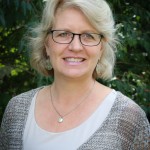This article appeared in the February-March 2014 issue of El Empaque magazine.
For great bread you need skilled bakers, quality ingredients and the right recipe. The same holds true for creating voluntary cross-sector recovery, and there is a new initiative in the Southeastern U.S. that is working toward that end this winter. It is being led by the Southeast Recycling Development Council (SERDC), an association of states and recyclers to support regional economic development of recycling. While there have been a number of efforts over the past five years to catalyze action to address the anemic rates of recycling in the U.S., most have stalled for a variety of reasons. Building on lessons learned from many of these well-intentioned initiatives and copious accumulated research, SERDC convened more than 100 of the most experienced industry and public sector professionals to develop a coalition of those interested in increasing recycling using an evaluative framework and targeting municipalities in the Southeast. This initiative called SERDC120 has an aggressive 120-day timeframe and is set to culminate in April with a set of pilot projects.
The framework presented at the meeting was informed by the research of Resource Recycling Systems and AMERIPEN. It identified six elements that, in combination, support a healthy recycling infrastructure using the model of residential curbside recycling common in the U.S. These six elements include: 1) supportive state and local policies; 2) local community committed to recycling and best practices that create easy access to recycling; 3) public and private partnerships to fund and coordinate activities to support local recycling infrastructure; 4) implementation of strong and consistent education and outreach programs; 5) robust material recovery facility (MRF) processing to create quality bales; and 6) strong end markets for collected materials.
While all elements are important, some of them are essential for systems to even exist. Experience has shown that committed communities and robust end markets create the needed foundations for effective recycling systems. These two elements stand out as especially critical, like flour and yeast. However, for recycling systems to evolve and remain healthy all six ingredients are needed to support the economics and the participation needed to sustain them on an ongoing basis – the water, the salt and the right amount of kneading.
At this point SERDC120 is convening stakeholders, evaluating the needs of targeted municipalities and identifying pilots that will best enhance recycling in those communities. The biggest test of SERDC120 will come in April when the pilots are selected and the cost to execute them tallied. At that time, those companies willing to commit will be asked to sign a Memorandum of Understanding (MOU) and put up funds—along with the participating states and communities—to see if voluntary measures to support recycling will be an effective strategy to boost recycling in the absence of regulation.
Most agree that what needs to be done is pretty well understood. SERDC120 is largely a test of collaboration, coordination, and most of all, willingness to improve recycling. In a climate where it is easy to let things fail from lack of will it is often hardest to dig in and strive to make them succeed. For companies, SERDC120 is operating against the backdrop of increasing complexity in the Canadian EPR system and a new U.S. state legislative session that brings renewed focus on packaging and recovery, judging by the dockets of several states.
For participating Southeastern states, SERDC120 is an exciting opportunity. The region is home to many underperforming systems and the prospect of partners to support improvements will likely be welcomed. There is also a strong regional recycling and manufacturing base with an interest in developing the recycling economy. The time seems ripe. In April, we will have a better idea of whether the recipe worked. Hopefully, this experiment in public-private collaboration to support municipal recycling will mark a new model of cooperation and with it the promise of successes that can be translated to other parts of the U.S.
Johnson, Anne. “New Public-Private Recycling Initiative Offers Promising Recipe for Recovery.” El Empaque Feb. – Mar. 2014. Print.
Anne Johnson is a Principal and Vice President at Resource Recycling Systems. She is an expert at applying life cycle thinking to materials management and enhancing products and process design. Anne has served as a strategic advisor for numerous companies, government panels and trade groups and is the former director of the Sustainable Packaging Coalition. Contact Anne at ajohnson@recycle.com.

